This article is more than 5 years old.
Every June, the good folks at the University of Victoria host the Digital Humanities Summer Institute, which draws a wide array of Digital Humanists, from the DH-curious to DH experts. These practitioners include librarians, faculty, and graduate students. This year, the Institute offered 49 weeklong workshops over two weeks—the offerings ranging from “Creating LAMP Infrastructure for Digital Humanities Projects” to “Feminist Digital Humanities” to “Introduction to Javascript.” The most difficult part of DHSI is choosing which workshop you’ll attend! However, the week is structured around lots of social events, colloquia, and unconferences, so you still get to learn from participants in other classes. DHers are also really good about tweeting, so a good source of info about what’s going on around campus is the #DHSI2017 hashtag.
This year I attended the first week of DHSI, June 5-9, and took “Text Processing Techniques and Traditions.” The class did not disappoint. I signed up for it upon arriving at Wake Forest and having many faculty express interest in digital publishing—or at least in rethinking traditional modes of academic scholarship. This course, taught by John Maxwell, an Associate Professor in the Publishing Program at Simon Fraser University in Vancouver, combined theoretical, historical, and practical instruction about text processing over the years—in other words, a great blend of hack and yack.
During the morning sessions our class “yacked” about the context and cultural histories of publishing technologies (going all the way back to Mr. Gutenberg himself). Afternoon sessions were reserved for “hacking,” or, as the course description put it, we folded, spindled, and mutilated documents. For me, this entailed converting Word documents into Markdown and HTML5 using Pandoc, a universal document processing tool. I also learned about Sublime, a plain-text editor that can be used as a substitute for the very pricey XML editor, Oxygen.
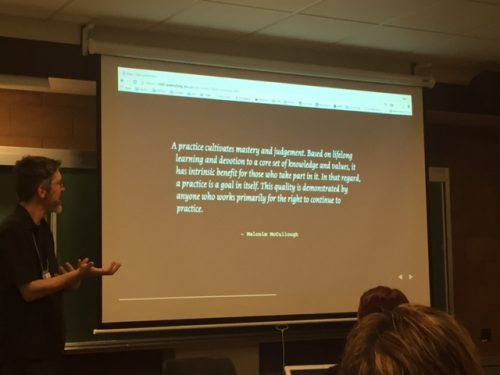
Because the “hacking” part of these classes can be overwhelming and confusing for humanists, our instructor made it clear why all of this is important: preservation and access. For example, your Microsoft Word document may not be accessible years from now after many software updates, or on a machine that doesn’t have MS Word. Or, what if you want to open a document created in the 1990s using WordPerfect? You probably won’t be able to open that now. Creating (or converting) documents into text files—strings of alpha-numeric characters without the formatting and markup specific to a certain piece of software—ensures longevity and accessibility.
Never a Dull Moment at DHSI
In addition to the workshops, each day features a Colloquium Session, in which librarians, faculty, and students present the work they are doing at their home institutions. I particularly enjoyed Monday’s Colloquium, organized under the theme #myDHis…
I was especially impressed by the talk by Angel David Nieves (Hamilton College) on DH and Social Justice. Jessica Otis, Carnegie Mellon’s Digital Humanities Specialist, presented on “Digital Humanities in the Big Tent.” I took away some great ideas for DH programming at Wake from their weeklong Digital Humanities Literacy Workshop—particularly the rubric of “Culture, World, Methods, Research” to organize the different skills and tools covered during the week.
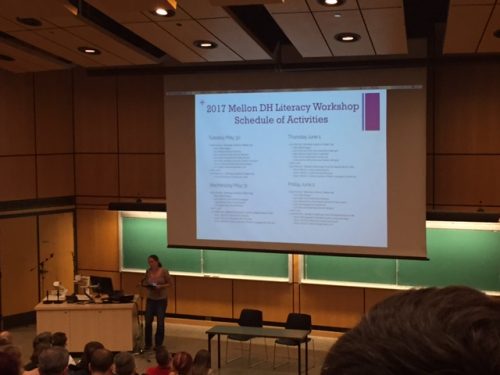
This year featured the first ever DHSI Librarians’ reception, held in the UVic Library’s new Digital Scholarship Center. The reception was packed, making it a little difficult to navigate the space, but I did get to see examples of the 3D printing projects and virtual reality technology. I also got to meet and chat with DH librarians from UC Berkeley, King’s College London, Simon Fraser University, and Grinnell College.
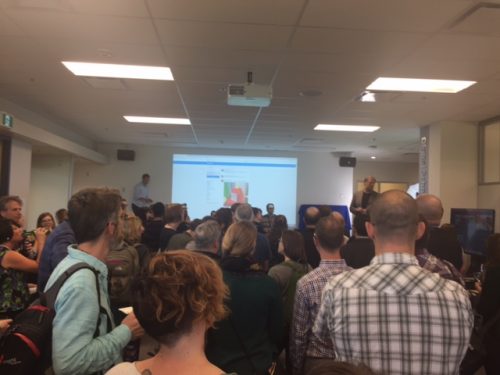
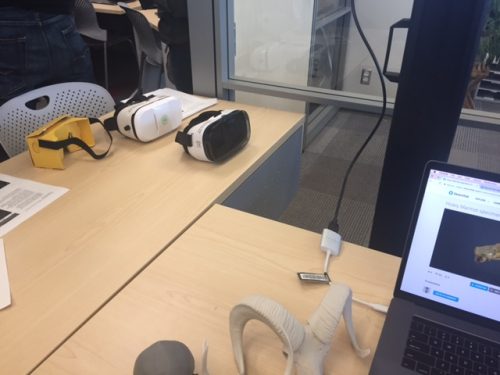
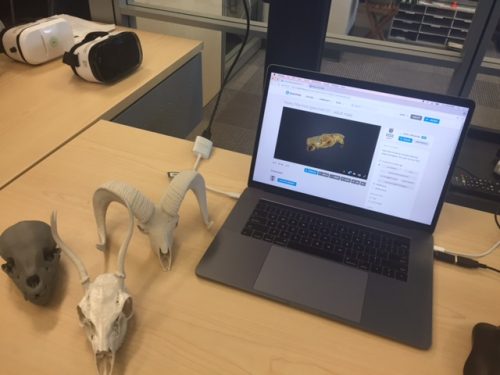
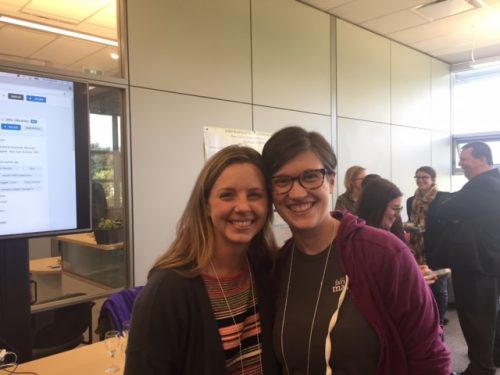
The Journey is Pretty Cool, Too
I’ll conclude with some pictures from my travels—getting to Victoria is a trek, but a beautiful one. It’s much easier and more affordable to get there by boat, so I usually fly into Seattle and take a ferry up to the island. The boat is inevitably filled with DHSIers, so the 3-hour trip is spent looking at the beautiful scenery and talking shop with your dorky DH cohort.

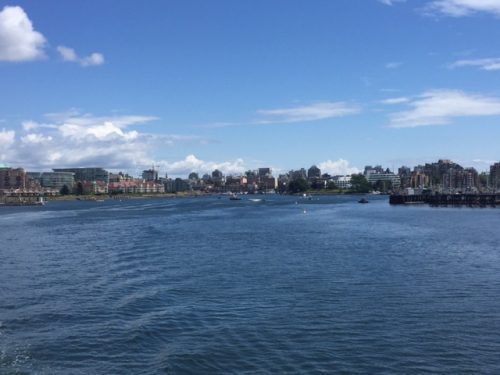
This year they maxed out at over 800 participants, and it’s not hard to see why! I’m already looking forward to next year’s Institute.

8 Comments on ‘Carrie at the Digital Humanities Summer Institute’
Sounds like you had an excellent DHSI week. I look forward to hearing more about it, and in brainstorming with you what ideas you have for new outreach here.
Carrie, thanks for this post! I hope we can do some cool things with VR and AR at ZSR in the future! Keep Meghan and me in mind if you want to team up on some cool outreach events!
Thanks for sharing — sounds like a great meeting!
Sounds like an information-filled conference that will equip you to bring new ideas and projects to ZSR and WFU. Thanks for a great report (I’m sure Gutenberg approves!).
I love the approach “hack and yak”! It’s interesting to hear about new tools, I don’t get much opportunity to investigate them these days. Thanks for the thorough report and your scenery photos are gorgeous!
Oooo, Sublime looks great – I use notepad++ when I’m working with XML but perhaps it’s time for an upgrade. Thanks for sharing!
Thanks for a very interesting overview of your Institute experience and the range of information and ideas you took away for future outreach and potential projects. The Carnegie Mellon workshop topics look useful and approachable even for DH newcomers!
[…] by the #myDHis Colloquium at this year’s Digital Humanities Summer Institute, I thought I’d write a post on my first academic year at Wake Forest as the Digital Humanities […]